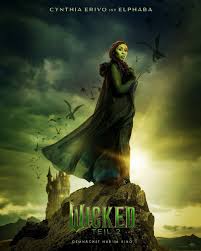The Lasting Cultural Impact of Wicked

Introduction
Since its premiere in 2003, Wicked has transcended the boundaries of traditional musical theatre, establishing itself as a cultural phenomenon. Based on Gregory Maguire’s novel, this adaptation of the classic tale of The Wizard of Oz has resonated with audiences across generations, exploring themes of friendship, identity, and the complexities of good and evil. The relevance of Wicked today is underscored by its ongoing worldwide popularity, attracting millions of viewers, making it essential to examine its influence on contemporary theatre and society.
The Story and Its Themes
Wicked tells the backstory of the beloved characters from The Wizard of Oz, focusing on the friendship between Elphaba, the Wicked Witch of the West, and Glinda, the Good Witch. This narrative twist challenges conventional perceptions of morality, inviting audiences to reflect on societal labels and the nature of good versus evil. The show’s iconic songs, such as “Defying Gravity” and “For Good,” have become anthems of empowerment, further solidifying the emotional connections that audiences feel towards the characters.
Broadway and Global Impact
The Broadway production has played a significant role in redefining musical theatre, with its innovative staging, rich musical score, and powerful choreography by Wayne Cilento. As of October 2023, Wicked has been performed in over 16 countries and translated into multiple languages, showcasing its universal appeal. Its success has not only revitalised interest in musical theatre but has also had a substantial economic impact on locations hosting its performances.
Merchandising and Fan Culture
The popularity of Wicked has spawned a vibrant fan culture, with merchandise ranging from apparel to collectibles, allowing fans to engage with the material beyond the theatre. Social media platforms have further amplified discussions about the characters, themes, and performances, helping cultivate an engaged community. The fan base’s dedication is evident in the numerous fan-created content, from artwork to fan fiction, reflecting the emotional resonance that the story has elicited.
Conclusion
As Wicked enters its third decade, its influence remains prevalent both within and beyond the realms of theatre. It has opened dialogues about the nuances of identity and morality, encouraging viewers to challenge preconceived notions. With plans for further international tours and adaptations, the legacy of Wicked is likely to endure, continuing to inspire new generations to reflect on the complexities of life and the power of friendship. The significance of Wicked is not merely in its entertainment value but also in its role as a catalyst for important conversations about our realities.







